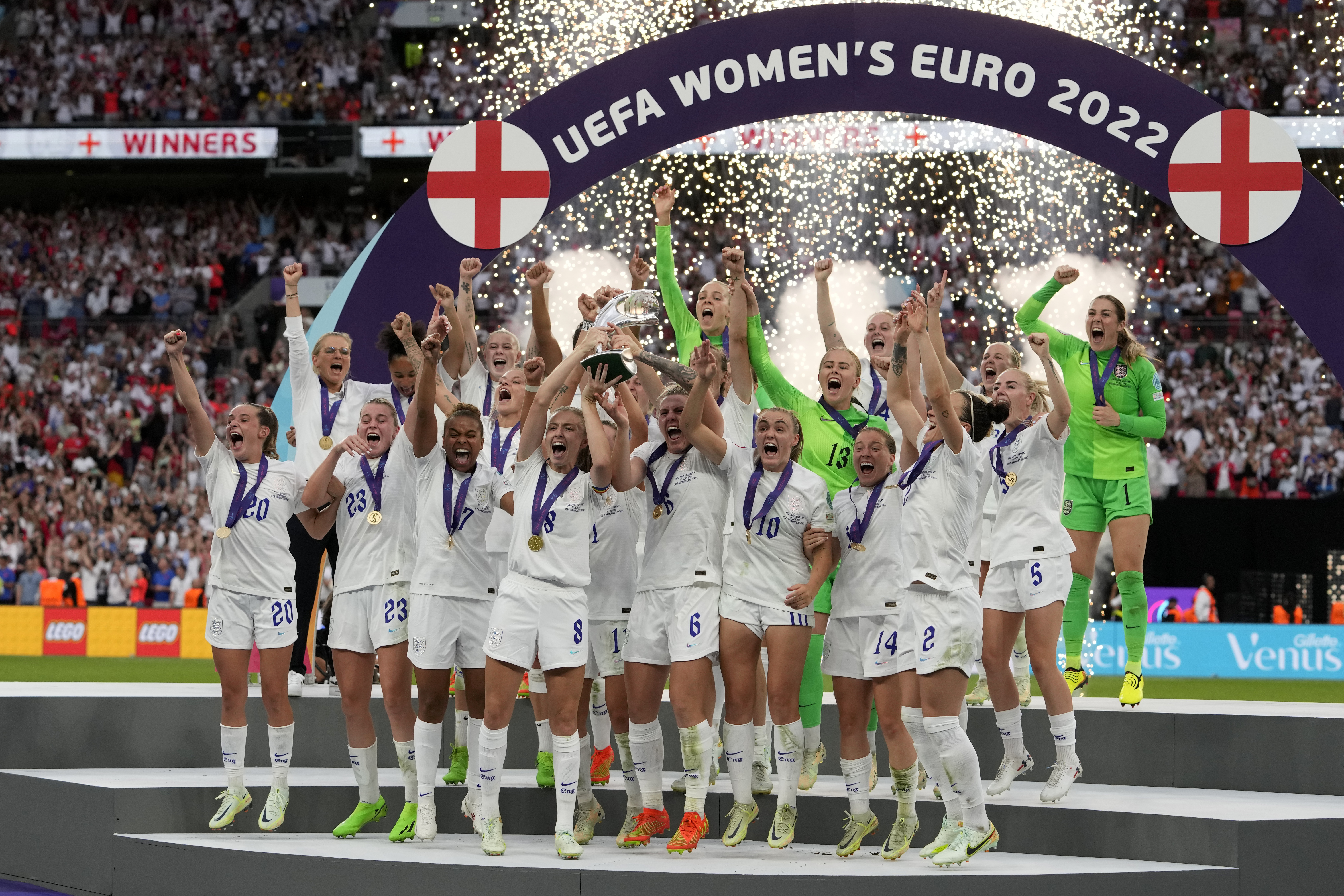
An extra-time strike from forward Chloe Kelly gave England a 2-1 win over Germany in the Women’s European Championship final to claim their first-ever major title in front of a record crowd on home soil.
Substitute Kelly reacted quickest to a loose ball from a corner in the second period of extra time on Sunday to give her side the win and avenge their defeat by Germany in the 2009 Euro final in Helsinki, Finland.
England coach Sarina Wiegman became the first manager to win the Euros with two different nations, having led her native Netherlands to the title in 2017.
“I just can’t stop crying. We talk, we talk and we talk and we have finally done it. You know what, the kids are alright. This is the proudest moment of my life,” England captain Leah Williamson said pitchside.
“Listen, the legacy of this tournament is the change in society. The legacy of this team is winners and that is the journey. I love every single one of you, I’m so proud to be English. I’m trying so hard not to swear.”

After the final whistle, the England players danced and the crowd sang their anthem, Sweet Caroline.
The good-natured atmosphere inside the stadium on Sunday drew contrasts with the violent scenes when the England men’s team lost its European Championship final to Italy at the same stadium a year ago.
“I always believed I’d be here, but to be here and score the winner, wow. These girls are amazing,” said Kelly, who returned from a serious knee injury in April. “This is amazing, I just want to celebrate now.”
It was a historic night for England, who opened the scoring in the 62nd minute through forward Ella Toone in front of a sold-out crowd at Wembley Stadium.
The 87,192 attendance was a record for a Union of European Football Associations (UEFA) tournament, men’s or women’s, underlining the growth of women’s football in Europe since the last time England and Germany played for a continental title 13 years ago.

Substitute Lina Magull brought Germany back into the game to send it to extra time, but Kelly popped up at the right time to clinch it for England and send the home fans wild.
Germany suffered a blow in the warm-up as striker Alexandra Popp, who had scored six goals in five games in her debut Euros, suffered a muscle injury and had to pull out of the lineup and was replaced by Lea Schuller.
Martina Voss-Tecklenburg’s side missed Popp’s presence in the box, but it was a heavily physical encounter that produced a goalless first half.
Toone opened the scoring shortly after the hour mark with a beautiful chipped finish, moments after coming on as a substitute.
However, that was cancelled out by Magull, who fired in an equaliser from close range 17 minutes later after the hosts had been pushed back by their opponents.
The match finished 1-1 after 90 minutes to take it into extra time, when the atmosphere died down a little as the thought of Germany winning a record-extending ninth Euros crown at the home of English football began to permeate.
That was until the 110th minute, when Kelly, who had moments before urged the crowd to raise their voices and cheer the side on, reacted quickest to stab in the winner and inflict Germany’s first defeat in a major final.

Al Jazeera’s Nadim Baba, reporting from outside the stadium in London, said there were record attendances at stadiums around the country during the tournament: more than 500,000 people have attended matches.
“The hope is that, beyond the elite, it can lead to a greater investment in the grassroots sports with girls at primary school age and beyond, not just having access but affording to train at the elite clubs,” Baba said.
“Sometimes it’s not free for them at academies linked to premiership clubs when it is for boys,” he said. “A bit of equality, a bit more respect and financial stability for the professional players so they can dedicate themselves to the sport. If there are any questions about the quality they offer, I think this tournament has really got rid of those questions.”







